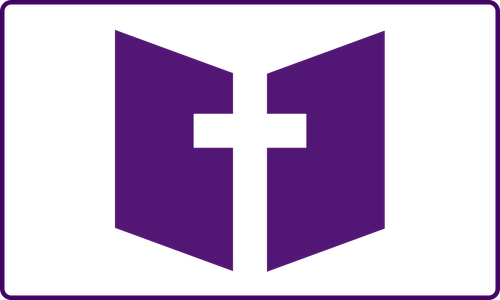The Great Commission is one of the seminal texts of the entire Bible. It is the God-inspired Jesus-spoken Spirit-empowered mission of the universal church1, and it is the entire storyline of history, the through-line that connects Genesis to Revelation, garden to garden and tree to tree.
But we tend to focus on only one expression of this statement, the one found in Matthew’s gospel:
19 “Go therefore and make disciples of all nations, baptizing them in the name of the Father and of the Son and of the Holy Spirit, 20 teaching them to observe all that I have commanded you. And behold, I am with you always, to the end of the age.” Matthew 28:19–20
What did the other gospel writers think the mission of the church was? What did they expect themselves and their followers to do after Jesus ascended into heaven? Why didn’t they record such a clear, concise command from Jesus’s own lips?
I can think of three possibilities:
- They didn’t expect Jesus to be bodily resurrected at all, despite what He had told them, and proclaiming the truth of His life, death, and resurrection was of such critical importance that they decided that expressing the mission was less important than executing the mission. Which, of course, all four also did with spectacular success.
- They didn’t see the Great Commission as stated by Matthew as a radical departure from the work Jesus had exampled and commanded throughout His ministry, so they didn’t find the need to emphasize it near the end of their stories about Him. Put another way, the Great Commission is so infused throughout the gospels that they didn’t see a reason to summarize it.
- They did, and we just don’t tend to read those verses nearly as often as we do Matthew 28:19–20.
In this article, I’m going to interrogate Mark and Luke and John about what they thought about the Great Commission. But before we get to that, let’s start with the famous one and ask Matthew what he thinks.
The Great Commission in MatthewPermalink
There are five clear parts to Jesus’s commission in Matthew’s gospel:
- Go therefore and
- Make disciples of all nations
- Baptizing them in the name of the Father and of the Son and of the Holy Spirit
- Teaching them to observe all that I have commanded you
- And behold, I am with you always, even to the end of the age.
In 2017, a sermon I heard gave an easy mnemonic for this structure, although it doesn’t capture the full flavor of what Jesus said: “Mandate, Mission, Message.”
The mandate is not to sit around thinking and praying but to get out of the building they were cowering in and off the peaceful nostalgia of the Mount of Olives and, as we’ll see later in Acts, go to the ends of the earth.
The mission is to continue Jesus’s mission of proclaiming the good news to the whole earth.
The message is the fact of Jesus’s death for the forgiveness of sins and His bodily resurrection for the defeat of death; in short, the gospel.
Go. Preach. The gospel.
Surely the other gospel writers wouldn’t disagree with Matthew, but let’s ask them what they thought, starting with Mark.
The Great Commission in MarkPermalink
Asking Mark questions is a little hard for two reasons. First, his gospel carries a unique sense of urgency that carries through to the very style of his writing. Not only does he use the word “immediately” more than any of the other gospel writers (35 times in 16 chapters), but Mark’s gospel tells the entire story of Jesus much faster than the other four: 23% faster than John; 37% faster than Matthew, and 42% faster than Luke! (Feel free to check my math.)
So if you want to know what Mark has to say about something, you’ve got to be quick.
But there’s a second challenge, which is that the last twelve verses of Mark (Mark 16:9–20) may not have been original to his gospel. They’re included in most modern English Bibles with a note that they weren’t included in the earliest manuscripts we have. As far as I can tell, they don’t contradict the story of God, but they may also not be authoritative.
All that said, let’s read what Mark writes:
15 And he said to them, “Go into all the world and proclaim the gospel to the whole creation. 16 Whoever believes and is baptized will be saved, but whoever does not believe will be condemned. 17 And these signs will accompany those who believe: in my name they will cast out demons; they will speak in new tongues; 18 they will pick up serpents with their hands; and if they drink any deadly poison, it will not hurt them; they will lay their hands on the sick, and they will recover.” Mark 16:15–18
It sounds an awful lot like Matthew!
- Go into all the world and
- Proclaim the gospel to the whole creation
- Whoever believed and is baptized will be saved, but whoever does not believe will be condemned
- And these signs will accompany those who believe…
We have the same structure: mandate (“go”), mission (“proclaim”), message (“the gospel”).
So far, nothing contradictory or controversial.
But then Mark—or whoever was appending an epilogue to Mark later—goes and adds a bit of his own flair about signs and wonders accompanying the believers.
Clearly, this part is in fact true, whether the text is God-breathed or not. Signs and wonders did accompany the disciples, as we see throughout Acts. Pentecost is the most spectacular of them (Acts 2:2–4), but here are three more famous miracles:
- Peter brings Tabitha/Dorcas back to life in Acts 9:40.
- Paul spends three days blind after encountering the risen Jesus in Acts 9:9.
- Jesus stands up and claps for Stephen’s speech just before Stephen is stoned in Acts 7:562.
Beyond specific records of miracles, the author of Hebrews gives us a broad statement that God accompanied the gospel in those first years with confirming miracles:
4 While God also bore witness by signs and wonders and various miracles and by gifts of the Holy Spirit distributed according to his will. Hebrews 2:4
The questionable part, I think, for most people, is the specific promised signs:
| Sign | Evidence |
|---|---|
| in my name they will cast out demons | Confirmed in Luke 10:17 |
| they will speak in new tongues | Confirmed in Acts 2:4 |
| they will pick up serpents with their hands | Confirmed in Acts 28:1–6 |
| and if they drink any deadly poison, it will not hurt them | |
| they will lay their hands on the sick, and they will recover | Confirmed in Acts 9:40 |
One of these3—drinking poison—isn’t confirmed in Scripture as far as I can tell, and that should make you wary. Not that it’s necessarily false, but if Jesus had said something so shocking and it had come to pass, I think Luke, the physician, would have written it down. Those in particular would have been especially fascinating to him.
But if we leave the miracles alone for the moment, we see that Mark has the same key points as Matthew: mandate, mission, message. Go. Preach. The gospel.
The Great Commission in LukePermalink
Luke wrote both Luke and Acts as a historical record of the life and ministry of Jesus and His disciples for the education of the world. So we are not surprised that his version of the Great Commission entails fulfilled prophecy and promises of the future.
After Cleopas and the other disciple meet Jesus on the road to Emmaus, they come rushing back to Jerusalem to tell the disciples. While they’re telling their tale, Jesus appears:
45 Then he opened their minds to understand the Scriptures, 46 and said to them, “Thus it is written, that the Christ should suffer and on the third day rise from the dead, 47 and that repentance for the forgiveness of sins should be proclaimed in his name to all nations, beginning from Jerusalem. 48 You are witnesses of these things. 49 And behold, I am sending the promise of my Father upon you. But stay in the city until you are clothed with power from on high.” Luke 24:45–49
What elements does Luke think are important?
- Fulfilled prophecy
- Christ should suffer and
- On the third day rise from the dead, and that
- Repentance and forgiveness should be proclaimed in his name to all nations, beginning from Jerusalem
- Witness
- The disciples will be “clothed with power from on high.”
Luke is, as always “writing an orderly account” (Luke 1:3). In just five verses, he links Jesus to both old prophecy and modern prophecy4; he establishes the trustworthiness of the disciples (who were some of Luke’s sources for his gospel) as witnesses to these things; and he bridges his gospel to Acts, which he also wrote and which begins with Pentecost, the decisive event where the disciples were “clothed with power from on high.”
What’s missing from Luke is the mandate/mission/message structure. He refers to the message, but only insofar as the disciples are witnesses to the truth. He refers to the mission, but only in the context of the divine will for the gospel to be proclaimed to all nations, not a specific command to the disciples to do so. And he doesn’t include a mandate at all. A reader familiar with Matthew can easily read between the lines and infer all of these things, but Luke doesn’t include them explicitly.
The Great Commission in JohnPermalink
John also records the Great Commission. But ever the odd one out, he includes unique elements:
19 On the evening of that day, the first day of the week, the doors being locked where the disciples were for fear of the Jews, Jesus came and stood among them and said to them, “Peace be with you.” 20 When he had said this, he showed them his hands and his side. Then the disciples were glad when they saw the Lord. 21 Jesus said to them again, “Peace be with you. As the Father has sent me, even so I am sending you.” 22 And when he had said this, he breathed on them and said to them, “Receive the Holy Spirit. 23 If you forgive the sins of any, they are forgiven them; if you withhold forgiveness from any, it is withheld.” John 20:19–23
First, John alone records that Thomas wasn’t around when Jesus shows up behind locked doors for the first time. (Thomas shows up later and insists on touching Jesus’s hands and side before he believes. I’m sure John didn’t mean to give his friend the eternal nickname “Doubting Thomas,” but he did.)
Second, John records Jesus breathing on the disciples and saying, “Receive the Holy Spirit.” Because of Acts 2, we typically think of the Spirit making Himself known at Pentecost, but John records this much more intimate scene of Jesus literally giving his best friends the breath of life.
John’s telling of this scene brings to mind two famous events long before it and one immediately afterward. In Genesis 2:7, God breathes into Adam’s nostrils, “and the man became a living creature.” In Ezekiel 37:5, God says to the valley of dry bones that he will breathe on them and they will live. And in Acts 2:2, the Holy Spirit enters the house with the disciples with a sound “like a mighty rushing wind.” The breath of God gives the kind of life Jesus always talked about: deeper, richer, higher, better, more than simply eating and drinking.
And finally, John includes that bit about forgiving sins. At first, I thought, “Wait, the disciples don’t have power to forgive sins!” But this isn’t the first time Jesus has conferred divine authority on His disciples.
It sounds an awful lot like what Jesus told Peter after his confession:
18 “And I tell you, you are Peter, and on this rock I will build my church, and the gates of hell shall not prevail against it. 19 I will give you the keys of the kingdom of heaven, and whatever you bind on earth shall be bound in heaven, and whatever you loose on earth shall be loosed in heaven.” Matthew 16:18–19
It also recalls the even earlier sending of the disciples:
14 And if anyone will not receive you or listen to your words, shake off the dust from your feet when you leave that house or town. 15 Truly, I say to you, it will be more bearable on the day of judgment for the land of Sodom and Gomorrah than for that town. Matthew 10:14–15
John records an explicit mandate (“even so I am sending you”), but the mission and message are implicit: Jesus says, “As the Father has sent me,” implying that the disciples’ mission and message are the same as Jesus’s were: the Son of God comes to bring salvation to the ends of the earth.
The Great Commission in ActsPermalink
We don’t traditionally consider Acts a gospel, but it gives the expression of the Great Commission that means the most to me:
7 He said to them, “It is not for you to know times or seasons that the Father has fixed by his own authority. 8 But you will receive power when the Holy Spirit has come upon you, and you will be my witnesses in Jerusalem and in all Judea and Samaria, and to the end of the earth.” Acts 1:7–8
Unsurprisingly, it has many similarities to the one from Luke’s gospel, because Luke wrote both books:
| Element | Luke | Acts |
|---|---|---|
| Promise of power | “I am sending the promise of my Father upon you…stay in the city until you are clothed with power from on high.” | “you will receive power when the Holy Spirit has come upon you” |
| Confirmation of witness | “You are witnesses of these things.” | “you will be my witnesses” |
| Beginning in Jerusalem | “beginning from Jerusalem.” | “in Jerusalem” |
| Proclamation to the ends of the earth | “repentance for the forgiveness of sins should be proclaimed in his name to all nations” | “and in all Judea and Samaria, and to the end of the earth” |
The increasing scope and impact of the gospel is the reason I love this statement more than the other four. It gives us immediate application to our own lives: make disciples nearest you first. In your own heart, then in your family or your house, then on your block and in your city and your state and your nation, and when you’ve covered all of those, get on a plane and make disciples of other nations.
ConclusionPermalink
We call Matthew 28:19–20 “the Great Commission” because it’s a nice concise statement of the mission of the church. But as we’ve seen, all four gospel authors record the resurrected Jesus sending his disciples into the world to proclaim the good news, to tell the people that Jesus is Lord, and to make disciples of all nations.
Go. Preach. The Gospel.
-
Several large modern organizations have adapted it for their formal mission statements. For example, the United Methodist Church says, “The mission of the church is to make disciples of Jesus Christ for the transformation of the world.” ↩
-
Stephen himself does signs and wonders, which is what got him in trouble in the first place (Acts 6:8). ↩
-
An earlier version of this article left off the confirmation of surviving snakebites in Acts 28:1–6 and claimed that two of Mark’s signs were not confirmed. Thanks to reader Brian for reminding me of this story and helping me make the correction. ↩
-
There are whole books on the prophecies Jesus fulfilled, but in this context, take a quick look at Genesis 12:3, Isaiah 2:3, Isaiah 49:6, Micah 4:2, and John 17:18. ↩



